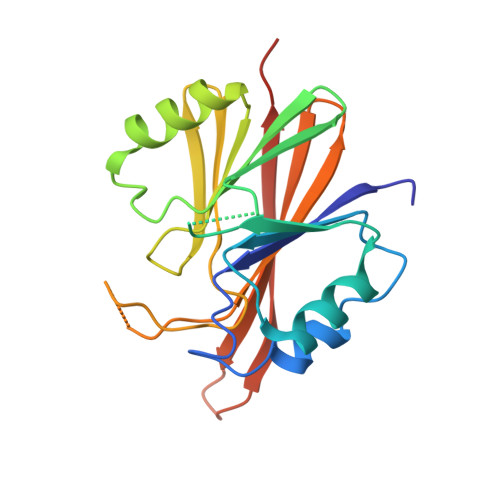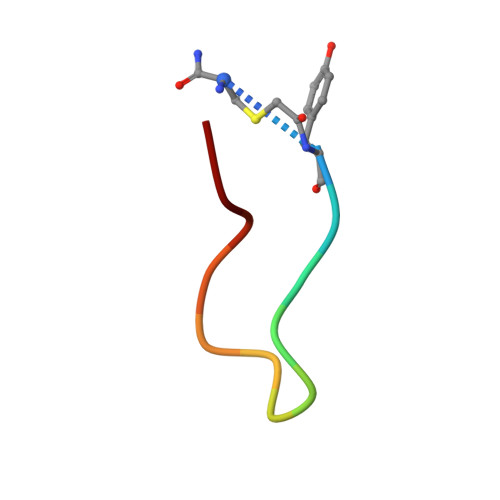De novo macrocyclic peptides for inhibiting, stabilizing, and probing the function of the retromer endosomal trafficking complex.
Chen, K.E., Guo, Q., Hill, T.A., Cui, Y., Kendall, A.K., Yang, Z., Hall, R.J., Healy, M.D., Sacharz, J., Norwood, S.J., Fonseka, S., Xie, B., Reid, R.C., Leneva, N., Parton, R.G., Ghai, R., Stroud, D.A., Fairlie, D.P., Suga, H., Jackson, L.P., Teasdale, R.D., Passioura, T., Collins, B.M.(2021) Sci Adv 7: eabg4007-eabg4007
- PubMed: 34851660
- DOI: https://doi.org/10.1126/sciadv.abg4007
- Primary Citation of Related Structures:
6XS5, 6XS7, 6XS8, 6XS9, 6XSA - PubMed Abstract:
The retromer complex (Vps35-Vps26-Vps29) is essential for endosomal membrane trafficking and signaling. Mutation of the retromer subunit Vps35 causes late-onset Parkinson’s disease, while viral and bacterial pathogens can hijack the complex during cellular infection. To modulate and probe its function, we have created a novel series of macrocyclic peptides that bind retromer with high affinity and specificity. Crystal structures show that most of the cyclic peptides bind to Vps29 via a Pro-Leu–containing sequence, structurally mimicking known interactors such as TBC1D5 and blocking their interaction with retromer in vitro and in cells. By contrast, macrocyclic peptide RT-L4 binds retromer at the Vps35-Vps26 interface and is a more effective molecular chaperone than reported small molecules, suggesting a new therapeutic avenue for targeting retromer. Last, tagged peptides can be used to probe the cellular localization of retromer and its functional interactions in cells, providing novel tools for studying retromer function.
Organizational Affiliation:
Institute for Molecular Bioscience, The University of Queensland, St. Lucia, Queensland 4072, Australia.















